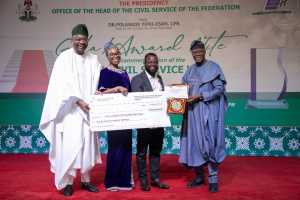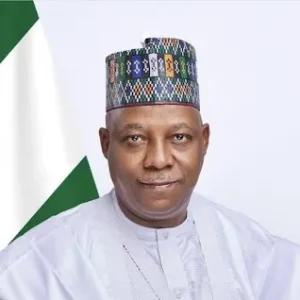
The Federal Government has called on potential investors to revive, reform and transform Calabar and Kano free trade zones (FTZs) into world-class standards to make them functional and globally competitive.
Minister of Industry, Trade and Investment, Adeniyi Adebayo, said this during a roadshow for the concession of Calabar and Kano FTZs, organised by the National Council of Privatisation (NCP) the Bureau of Public Enterprises (BPE) in conjunction with the Federal Ministry of Industry, Trade and Investment and the Nigeria Export Processing Zones Authority (NEPZA).
Adebayo lamented that efforts to replicate the success of the FTZ model in Nigeria have not recorded the same success recorded by other African countries like Ethiopia and Ghana.
He said the two FGN-owned special economic zones (SEZs), in their current state, could not significantly improve the country’s competitiveness nor help the drive to effect structural change and economic diversification.
He described poor infrastructure, reliance on treasury to finance capital expenditure and lack of a link between the industrialisation strategy of the government and the zones among others as factors responsible for Nigeria’s failure to meet the needed structural change.
According to him, the ultimate aim of the free trade zone scheme is to attract foreign direct investments, generate employment, enhance trade and industrialisation, promote exports, enhance foreign exchange earnings and encourage the transfer of technical know-how.
He envisaged that the two FTZs, when fully developed within a coherent, well designed and executed framework, could deliver tangible outcomes like their counterparts in other climes where FTZs have contributed significantly to economic development
He said that 30 years after the FTZs scheme was adopted in Nigeria, cumulative investment stood at about $20 billion, whereas in about 30 years when the first free zone was established in the Jebel Ali area in Dubai, the UAE has emerged as the destination of choice for global trade and investment.
In 2015, he said, JAFZA generated trade worth $87.6 billion and accounted for almost 32 per cent of the total foreign direct investment (FDI) flowing into the UAE and about 24 per cent of Dubai’s annual gross domestic product (GDP).
In view of the above and given the large investments required to transform the zones, he said private sector investment was important to reduce the government’s financial burden and the associated business risks.
He said the need for private sector participation is also critical to introduce innovative ideas to the management and operational framework of the zones for improved performance in areas of economic growth, employment generation, foreign direct investment and export promotion.
The minister said the 25-year concession done under the Build-Rehabilitate-Operate and Transfer (BROT) model was adopted to ensure that private sector investors with the requisite technical competence and financial capability that would emerge from a competitive transparent process are allowed to invest, operate and manage the facilities during the period, while the ownership remains with the Federal Government.
He added that the roadshow was a demonstration of the Federal Government’s commitment, desire and implicit confidence in the ability of the private sector not to only reinvigorate Calabar and Kano FTZs, but to make them functional, competitive and explore the huge potential of African Continental Free Trade Area (AfCFTA) to enable the country to achieve rapid, inclusive and sustainable industrialisation, create jobs, and diversify its export earnings.
Director-General of BPE, Alex Okoh, said with the level of indications and participation, the level of interest by prospective investors had been quite strong.







